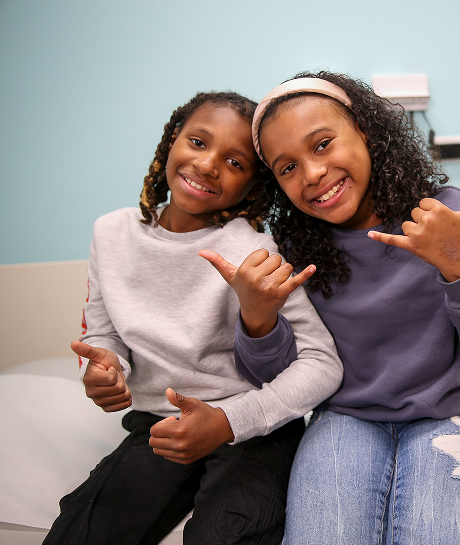orthopedic surgery
preparing for your child’s surgery
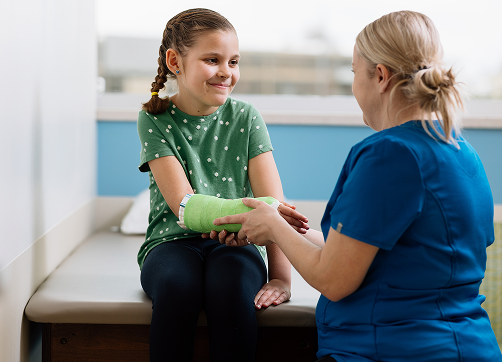
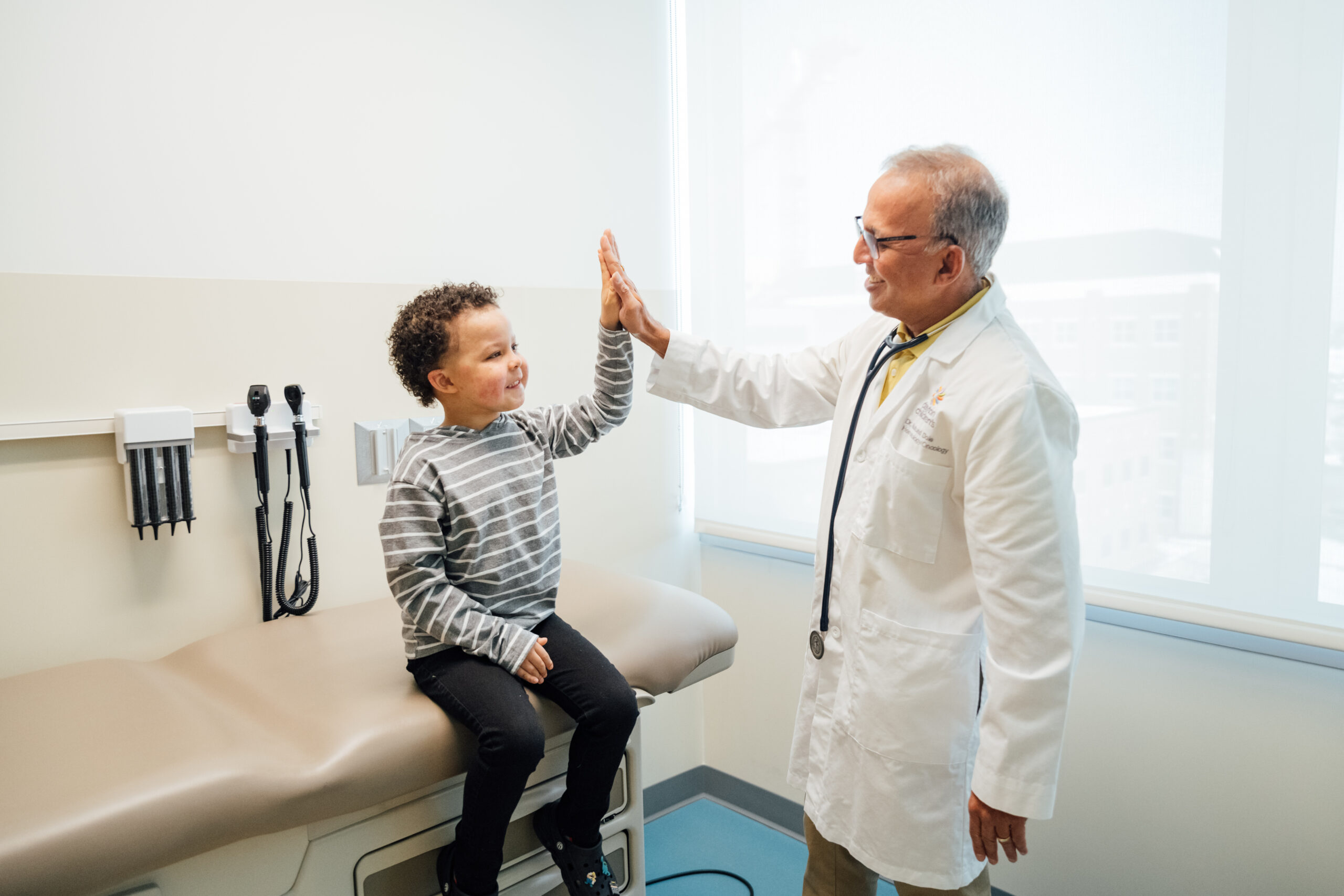
service overview
Most orthopedic surgeries are performed on an outpatient basis, meaning that the patient goes home the same day as their surgery. Some complex procedures, however, require a hospital stay. These can include surgeries to correct scoliosis or a traumatic injury.
Whenever possible, pediatric orthopedic surgeons at Dayton Children’s use minimally invasive techniques to repair fractured bones and treat sports-related injuries, such as ligament tears. These procedures are performed through tiny incisions instead of one large opening. Because the incisions are small, patients tend to have quicker recovery times and less discomfort than with conventional surgery—all with the same benefits.
The Benefits of Physical Therapy Before Surgery
Our physicians often recommend physical therapy prior to surgery to help patients reduce swelling, improve their range of motion and build strength. In many cases, patients who receive physical therapy prior to surgery experience a better outcome than those who don’t. Beginning physical therapy before surgery is also an opportunity for patients to meet and become comfortable with their physical therapist, who may continue to see them after surgery.
Please visit our “preparing for surgery” web page to get helpful tips, learn what to eat and drink, learn where to park on the day of surgery and much more.
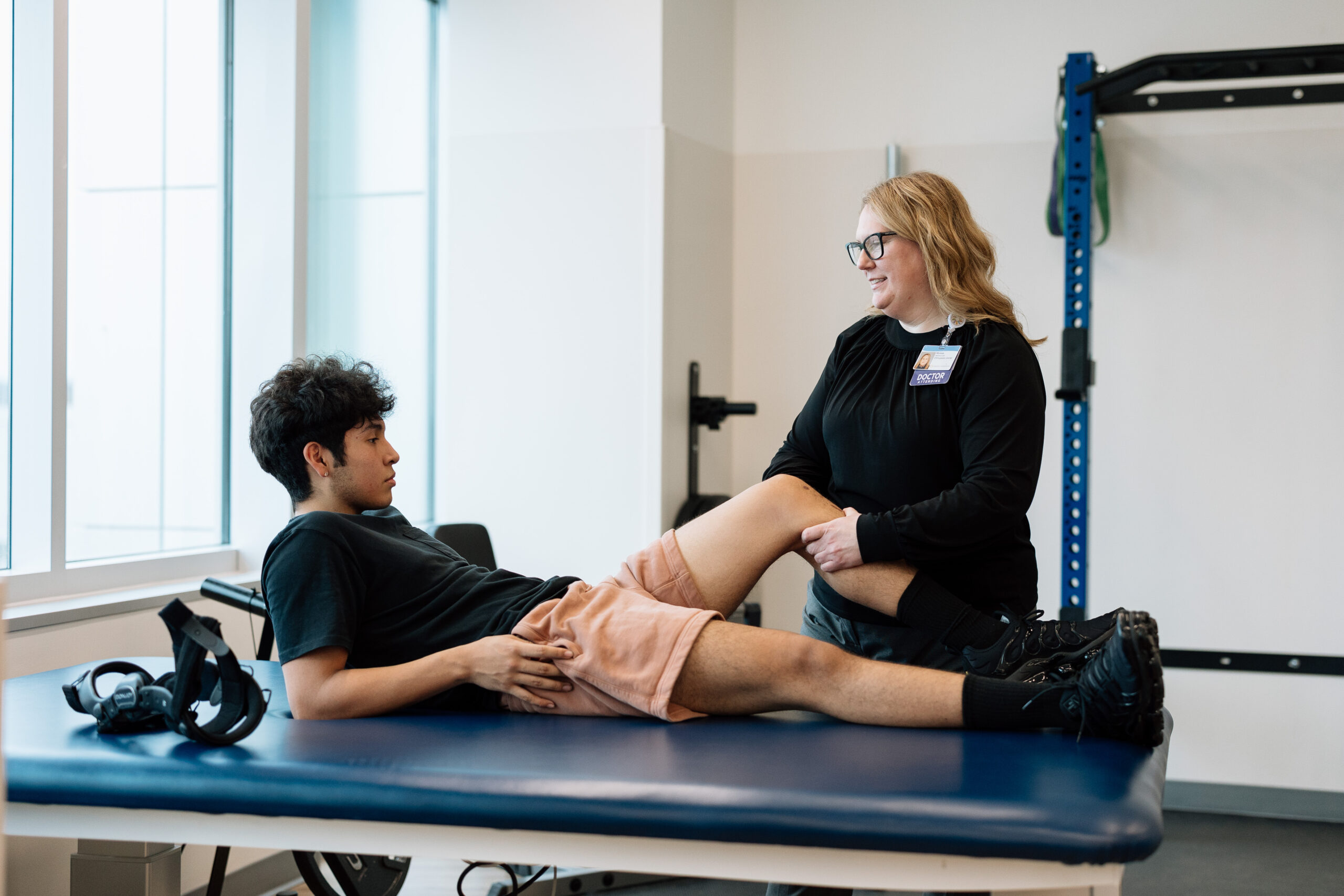
The Benefits of Physical Therapy Before Surgery
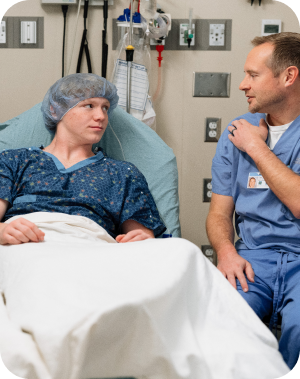
what should I do before the day of surgery?
- Bathe or shower the evening before or the morning of surgery (be sure to wash your hair).
- During your pre-surgery teaching, you will receive a bottle of Hibiclens to wash with the night before surgery.
- Remove any metal jewelry, including all piercings.
- Remove any nail polish. An oxygen saturation monitor will be placed on your finger during surgery. The monitor shines through the nail bed to measure oxygen saturation level in the body. This can be difficult to read if your nails are painted.
- Do not apply lotion the day of your surgery. Lotion can make it difficult for tape to adhere to the skin correctly and increase the risk of infection.
- Do not wear makeup the day of surgery.
- Put long hair up with a nonmetal hair ponytail holder (NOTE: Please part your hair in the middle from front to back and fix the hair in pigtails that start behind each ear and secure them with a hair fastener that does not have any metal in it. Your hair should be clean and dry with no hair products in it).
- Remove contact lenses and bring eyeglasses.
- If applicable, remove any removable mouth appliances (e.g., retainers).
- Do not take any aspirin, ibuprofen (e.g., Aleve, Advil or Motrin), smoke, use recreational drugs or alcohol for two weeks before surgery.
- Do not eat solid foods (including candy, chocolate or chewing gum), or drink milk.
Please visit our preparing for surgery page for more information.
your inpatient stay
When an inpatient stay is necessary following orthopedic surgery, patients are admitted to one of the hospital’s inpatient units, where specially trained nurses and others care for their needs. Before going home, these patients will be scheduled for a follow-up clinic appointment, which will take place within two to four weeks.
what to pack
- You can expect to stay overnight in the hospital for a week on average. Please label all items that you are bringing with you.
- Personal care items
- Laptop or tablet, cell phone, phone charger, books, cards, crafts and music.
- A body pillow to help you get comfortable in bed and help with positioning.
- Fitted undershirts to wear over or under your brace.
- Schoolwork
- Robe, slippers and pajamas (We provide pajamas, but you may prefer the ones from home). If your mother or father is spending the night, clothes that can be layered for temperature changes
what to bring with you the day of surgery
- Health insurance card and photo identification.
- Health insurance co-payment.
- If you donated blood prior to surgery, bring your blood work paperwork. You can also bring your paperwork to your presurgery teaching.
- Medicines that you take including inhalers, vitamins, herbals and over-the-counter drugs in their original containers.
- If you are bringing your contact lenses, bring contact lens solution, contact lens case and eyeglasses.
- If you are bringing removable mouth appliances such as retainers, bring the appliance case.
- If you are 18 years old or older, bring a copy of your living will or advance directives.
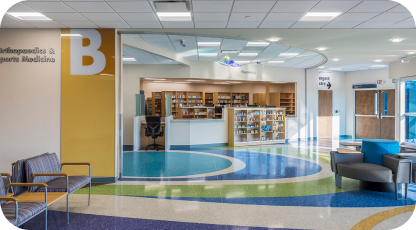
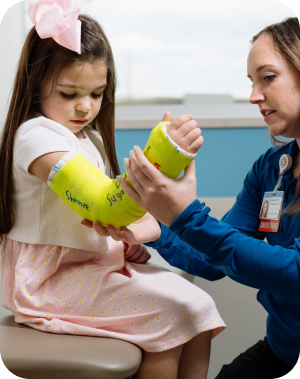
going home
After patients return home, our team continues to provide support and care. The Dayton Children’s orthopedic clinic is available by phone 8:00 am to 5:00 pm Monday through Friday to answer questions, call in pharmacy refills, verify insurance coverage, explain test results and much more. After hours, parents can dial 937-641-3000 to reach the hospital’s operator and ask for the orthopedic surgeon on call.
pain management
A pain management plan written for your child based on age, what’s wrong and the type of procedure. Different techniques are used to manage your child’s pain.
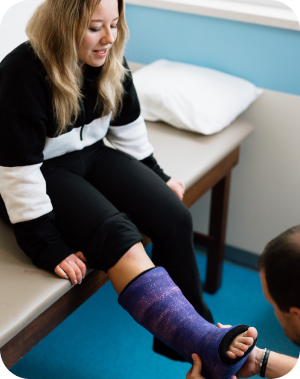
here when you need us
Whether you’re looking for the right provider, ready to make an appointment, or need care right now—we’re here to help you take the next step with confidence.
